


Self-care is the most important practice for maintaining balanced health. If you neglect this, you may find yourself at risk of burnout or poor well-being. One way to remind yourself to engage in daily self-care is to use a self-care planner.
In this article, you will find over 30+ free printable self-care planners for you to use and focus on leading a balanced life. Keep reading to find these planners to save and download!
Self-care can be defined as caring for yourself. This can be physically, mentally, emotionally, or spiritually.
While it may seem rather simple to do for yourself, you’d be surprised how many people tend to neglect this aspect. At least 2 in 3 people in the United States alone, do not practice self-care [1].
This is especially common when going through a challenging situation such as job loss, bad health, a financial crisis, or divorce. Self-care becomes overshadowed by the magnitude of grief [2].
When you let your negative emotions take precedence, they can slowly build up and eventually become overwhelming.
Some of the negative consequences that can happen if you don’t practice self-care [3]:
See also: 30-Day Self-Care Challenge: Printables and Ideas
If you feel like your mental health might be worsening or you are experiencing burnout, then it’s probably a good time to take a step back. Take some time to recognize areas that may need some changes.
For example, if you have the habit of overthinking too much, acknowledge this feeling and focus on a self-care activity like exercising instead. It could also be from one of your current self-care practices.
Here are some good self-care activities that you can try doing when you decide to take a day off for self-care.
Exercise gives you a burst of energy. It stimulates your blood circulation and awakens your entire body. If you’ve spent the entire day at work or in class, it could be good for you to get up and move more. Even a short 20-minute workout can boost your mood and keep you on track for a pleasant day.
Besides, when you are focused on working out and breaking a sweat, it distracts you from any negative thoughts that you may have. You would focus on building mind-body awareness.

Art and crafts can be a wonderful way to release your creative energy while also putting you in a calm frame of mind. The benefit of including arts and crafts in your self-care routine is that it doesn’t require any creative aptitude or skill level.
You can relax your mind by falling into a creative trance while painting, drawing, making origami, knitting, or even coloring.
Take a deep breath of fresh air and step outside! Being in nature can surely alleviate stress, anxiety, and even depression. Don’t worry, you won’t have to venture into the wild to reap the rewards. Going to a neighboring park, soccer field, or even your own backyard can have a significant impact on your mood.
Take a walk, bring a picnic basket and mat, and get some Vitamin D.
When we talk about mental health, it’s about taking small steps to improve yourself. That could be as small as getting out of bed in the morning or having breakfast.
Making sure that you get enough sleep at night is also a part of it. Especially if your regular schedule has you staying up late and waking up early. Whether it’s finally getting 7 to 9 hours of sleep, or even just sneaking in a 20-minute nap, it’s still a part of self-care.
If you are currently struggling with sleep, it’s perfectly fine. Maybe you just need a temporary helping hand like ShutEye®. Check out the ShutEye app, a patented sleep-tracking app that offers you personalized insights and recommendations to help you sleep better one night at a time.

Creating or using a self-care planner is a good tool to start off with. By being mindful, keeping track of what you do every day and having gratitude for all that you have, is a great way to maintain your well-being.
That said, self-care is a very personal matter and it may look different for everyone.
Some aspects to consider including in your planner:
You may also like: The Feelings Wheel: Learn How to Navigate Your Emotions
Here are the free self-care planner templates that you can use to help you start your self-care journey.
Feel free to use it as a daily planner, or weekly planner, or create a monthly format, however, you can choose to.
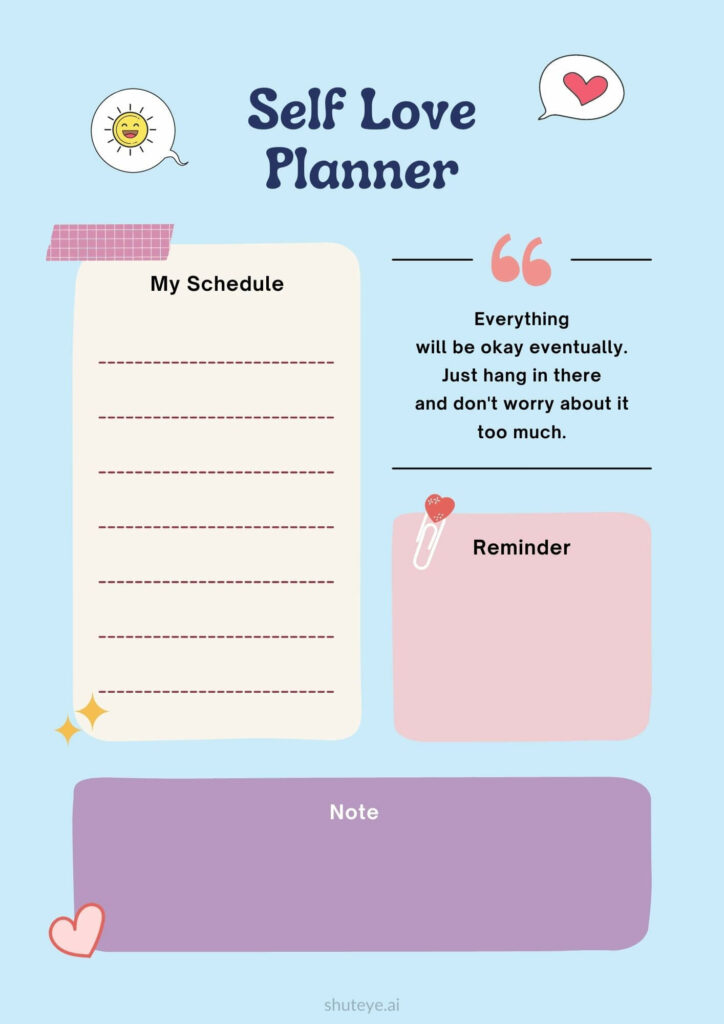
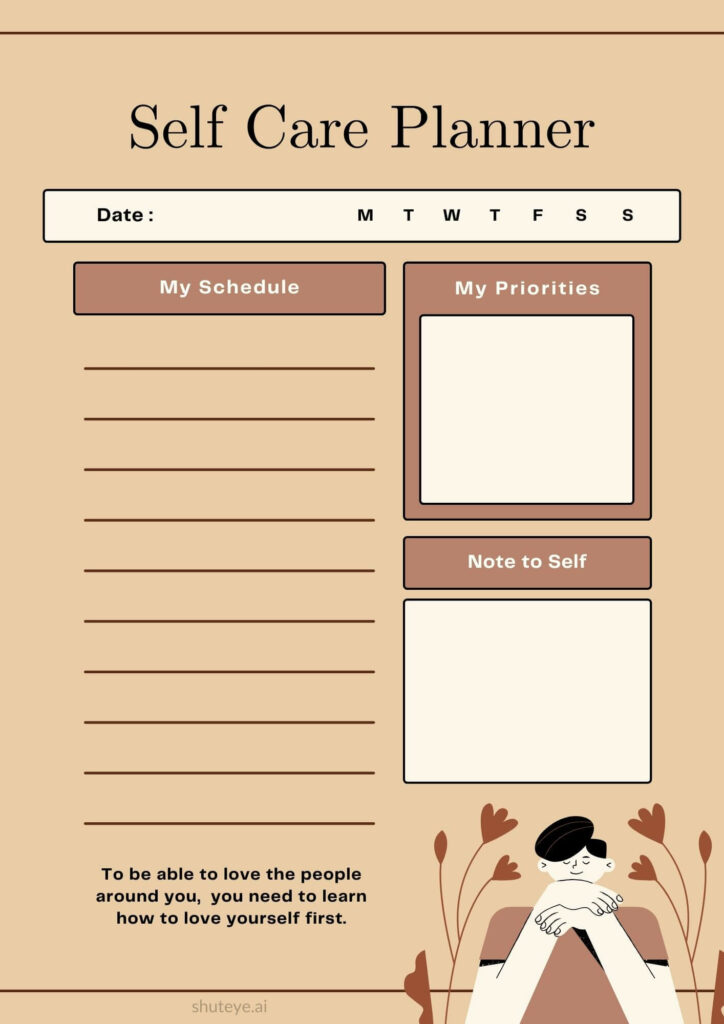
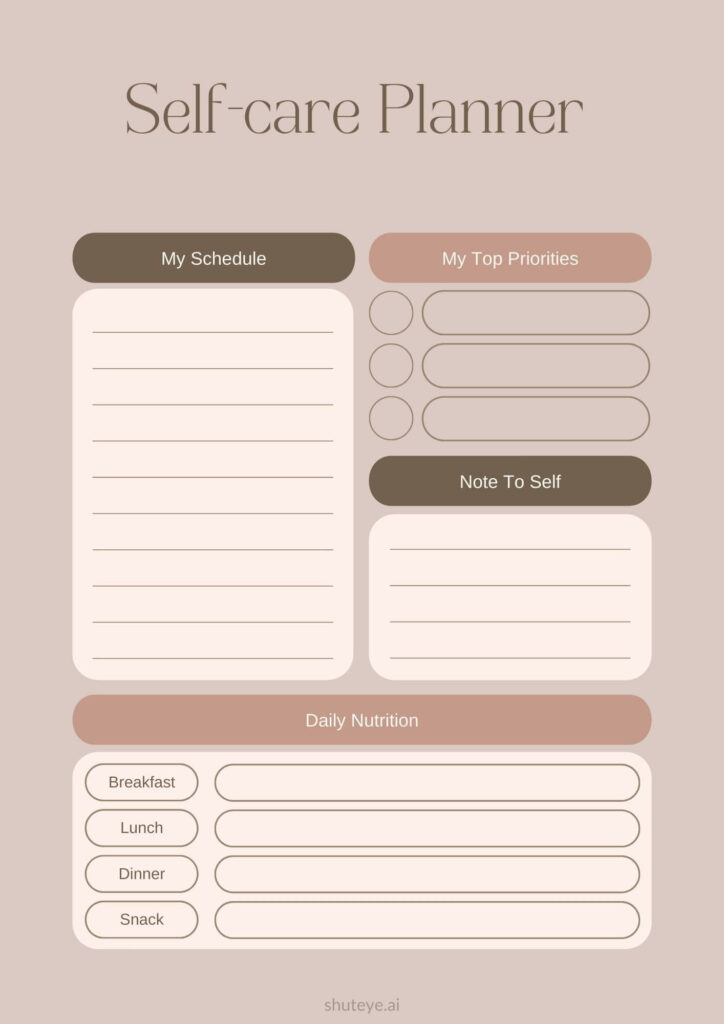
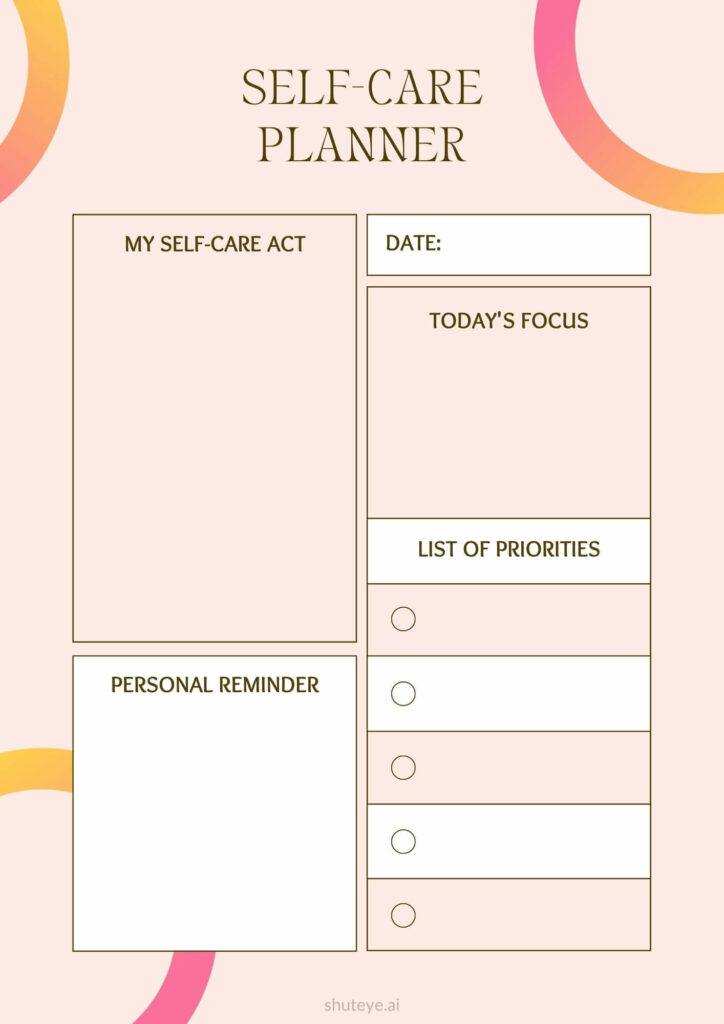
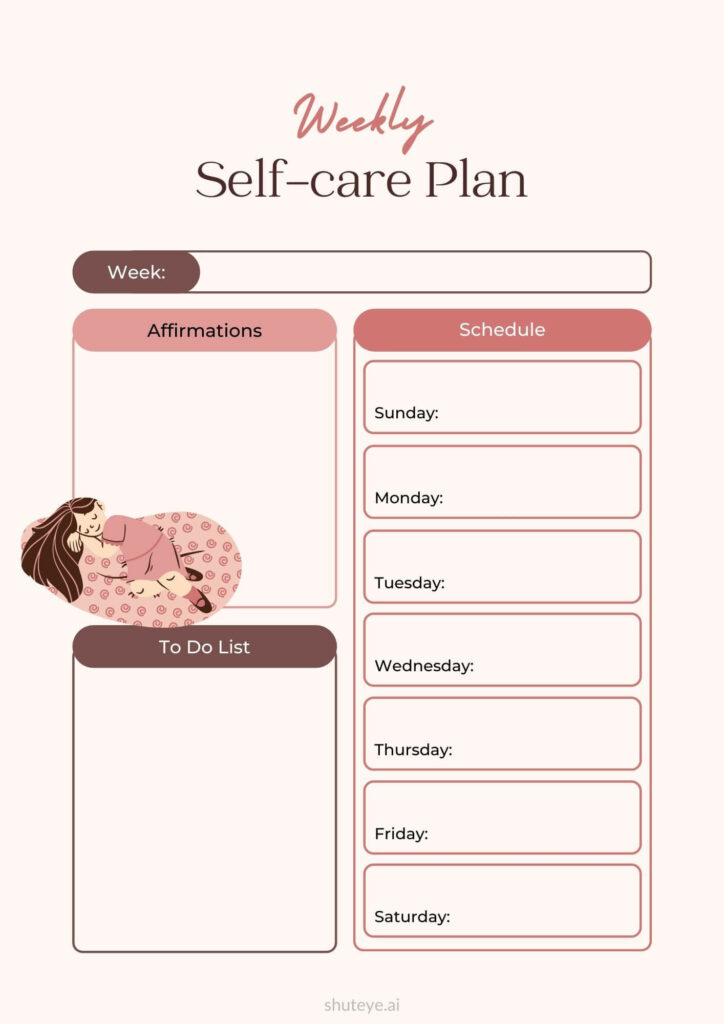
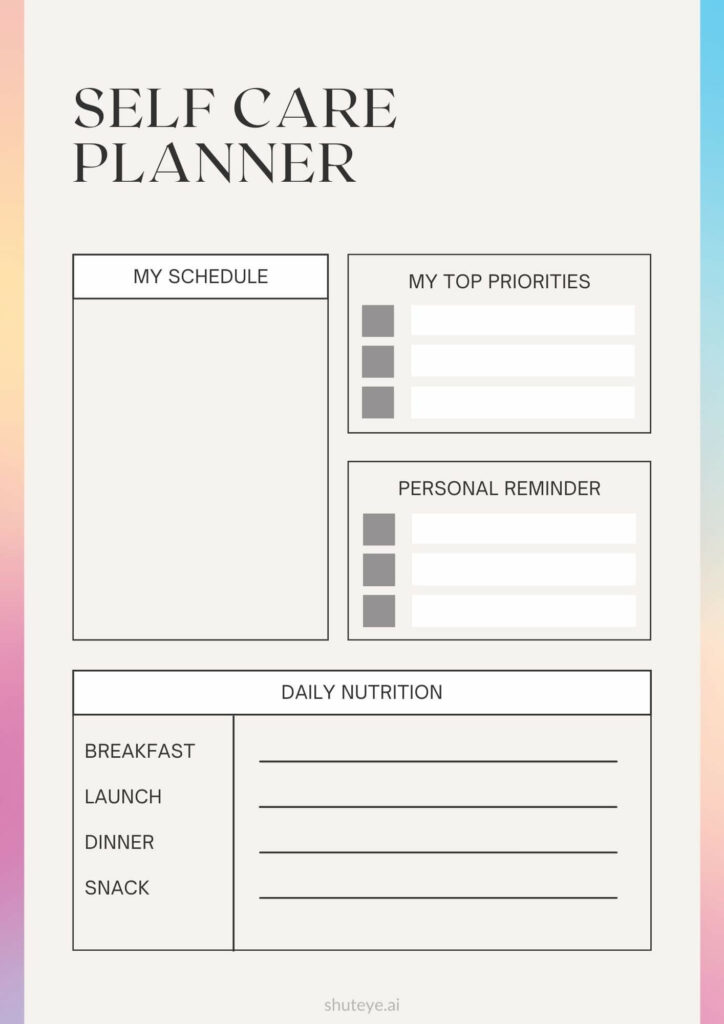
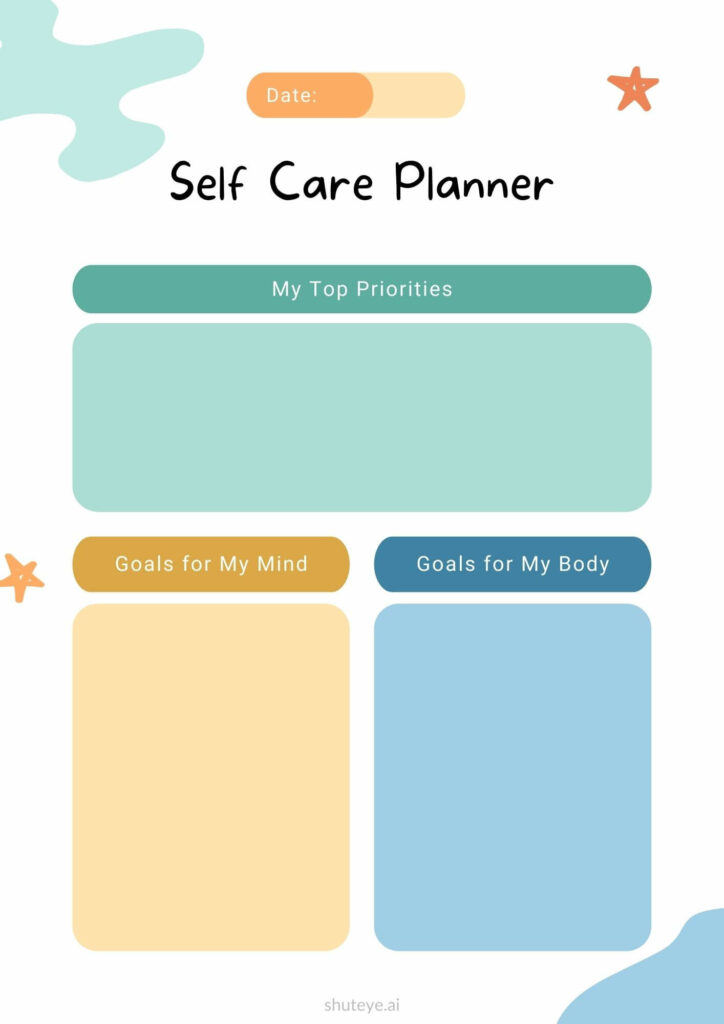



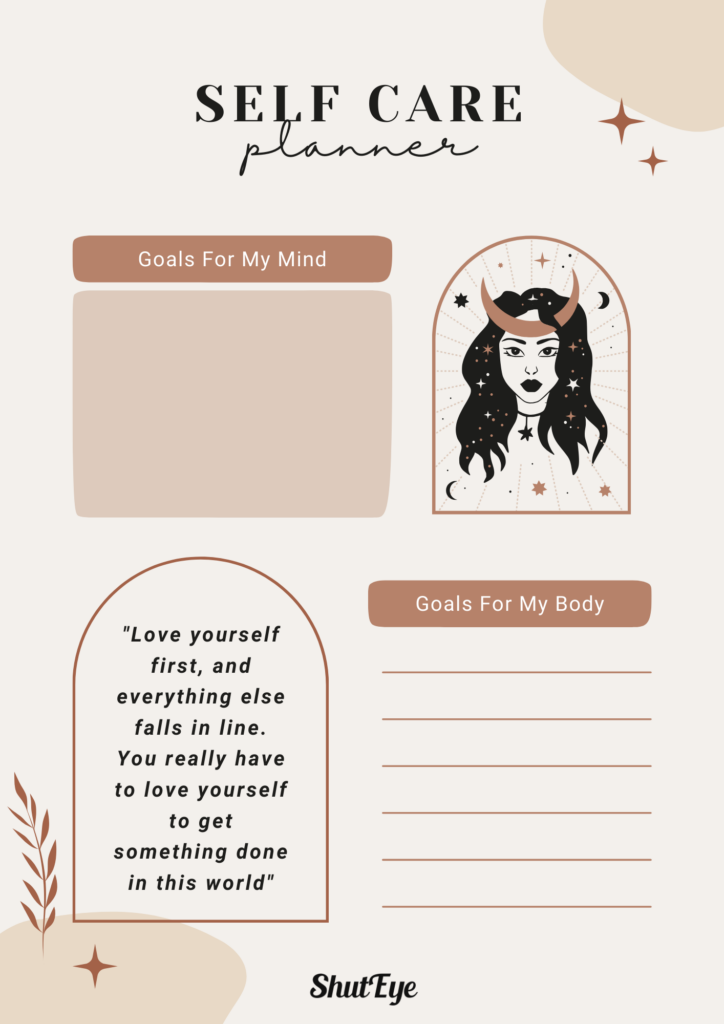
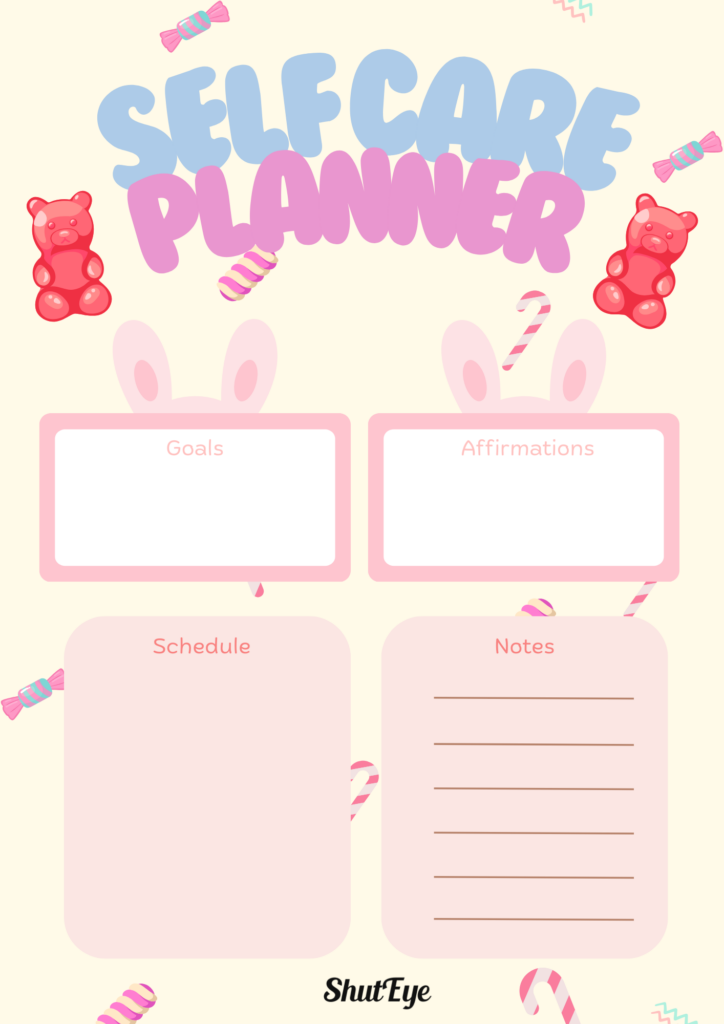
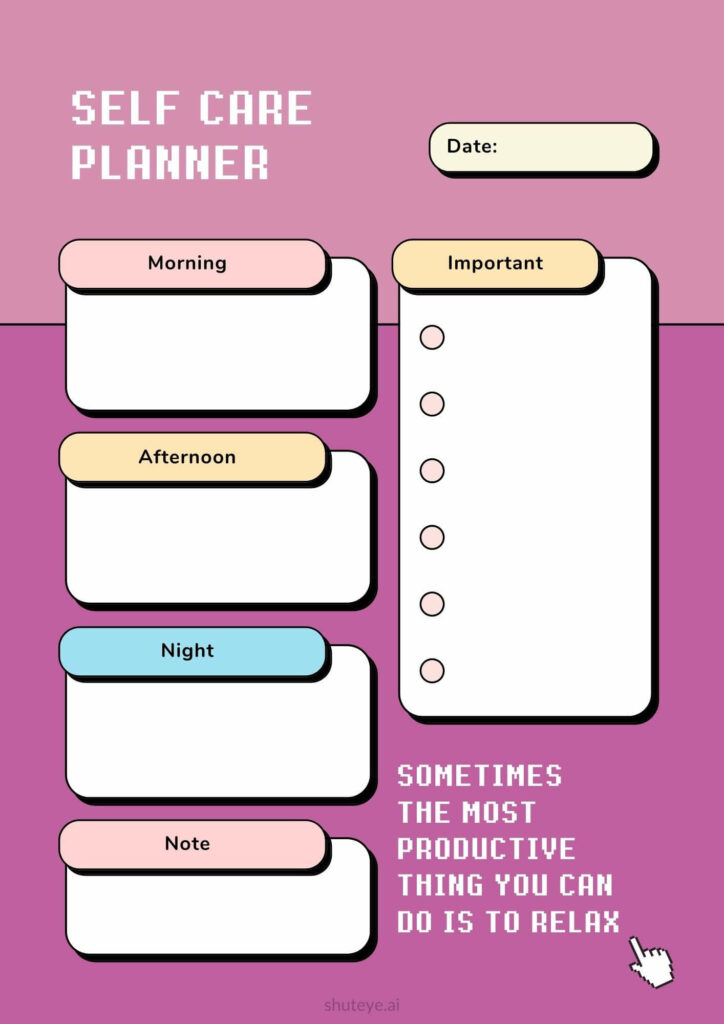
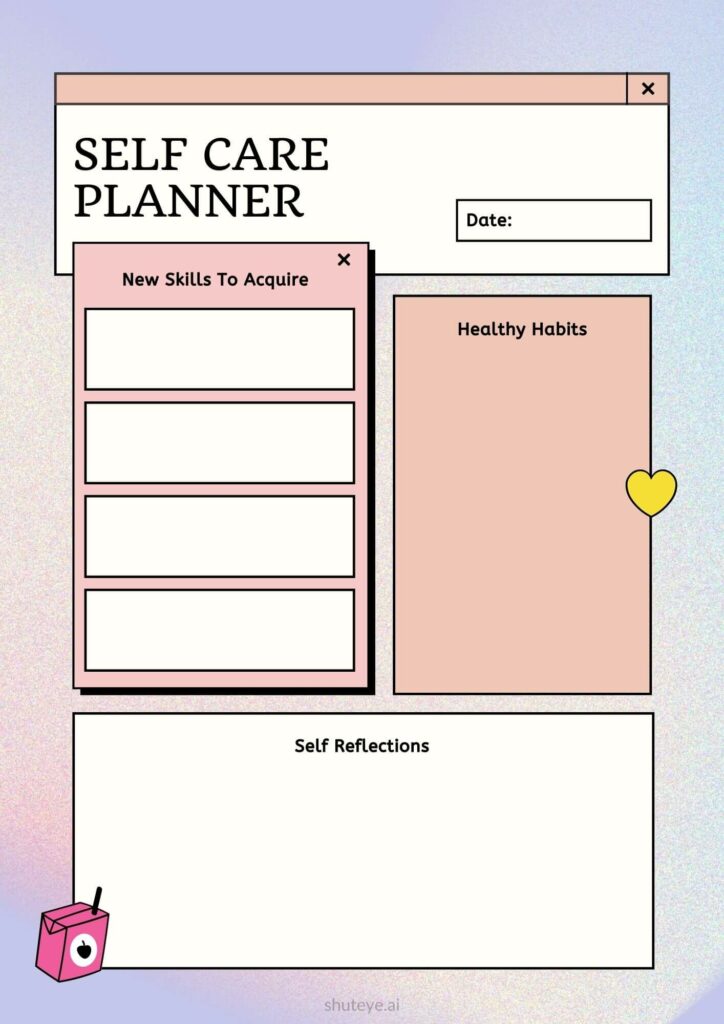
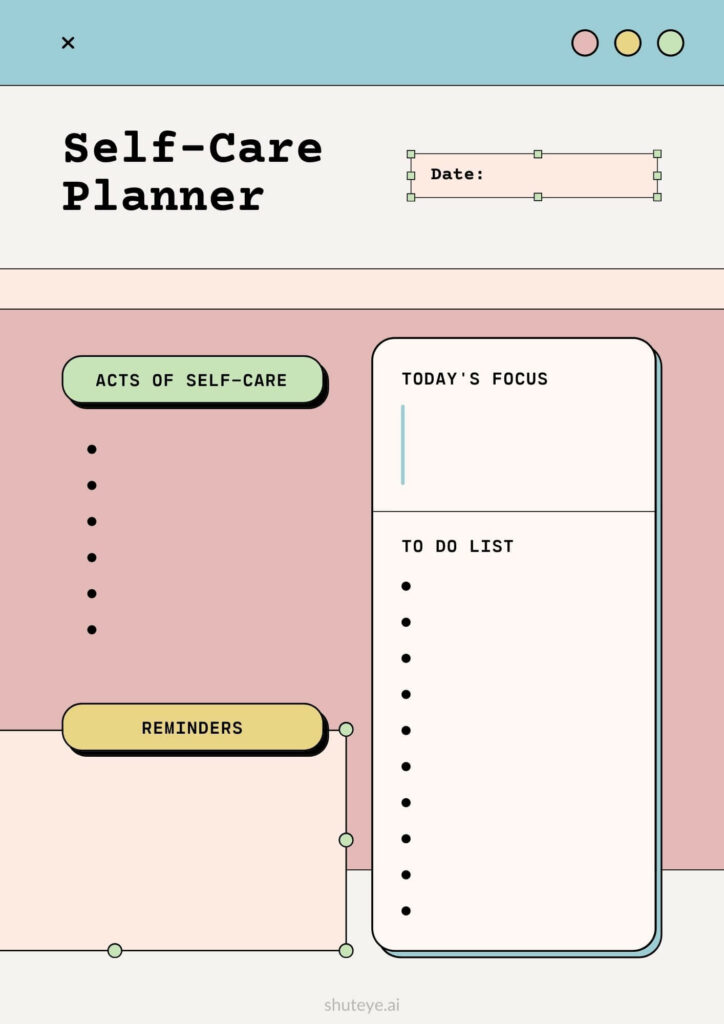
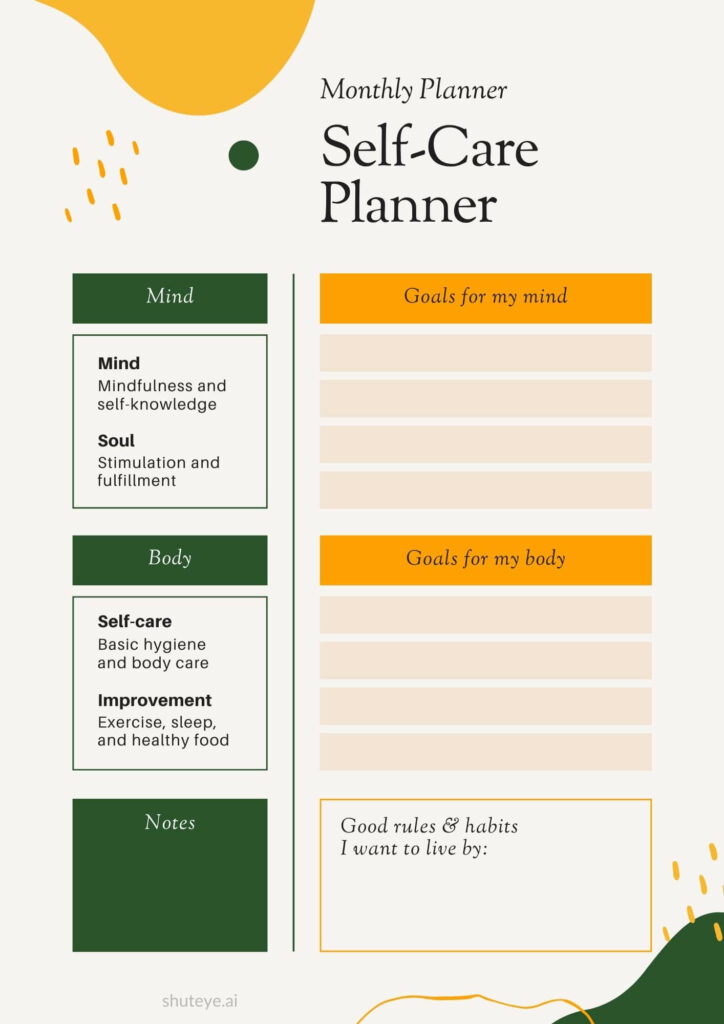
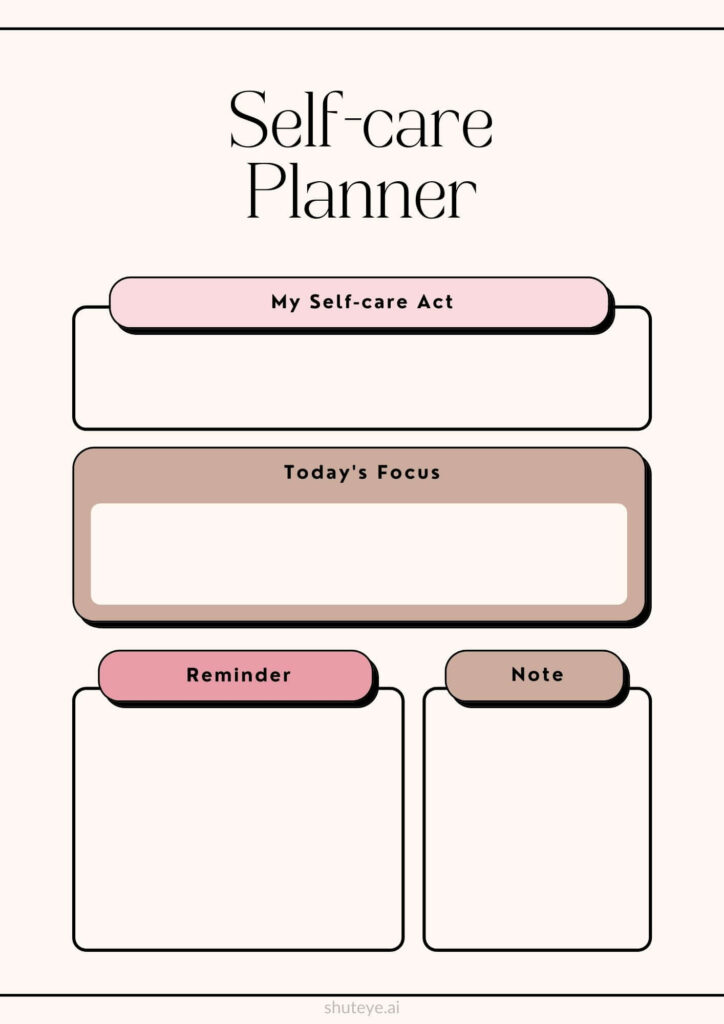
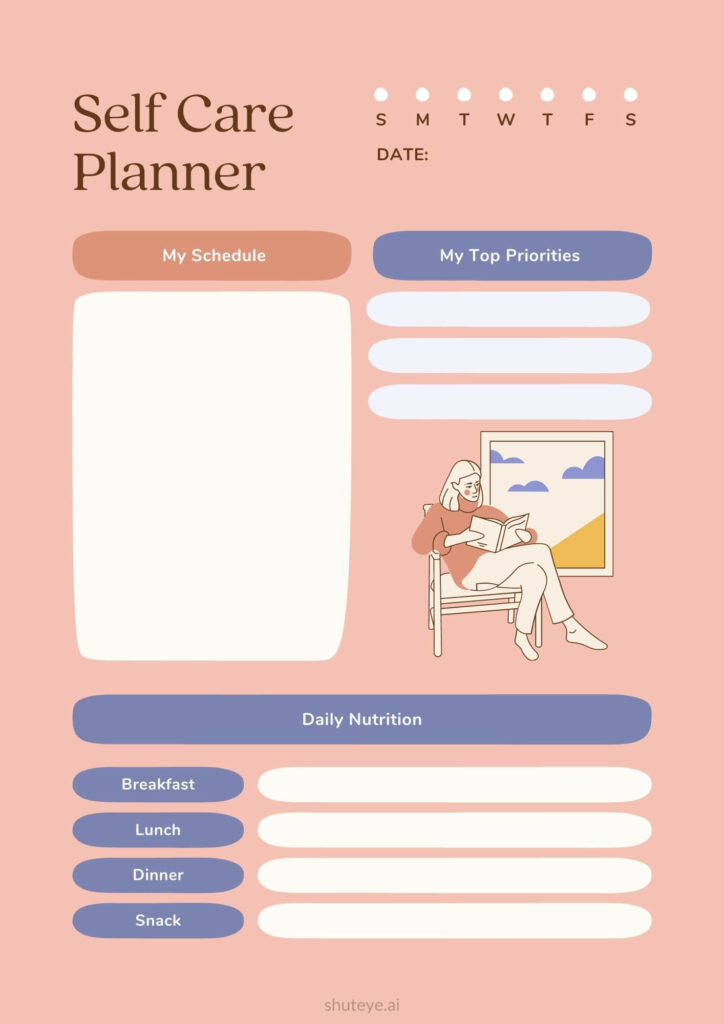
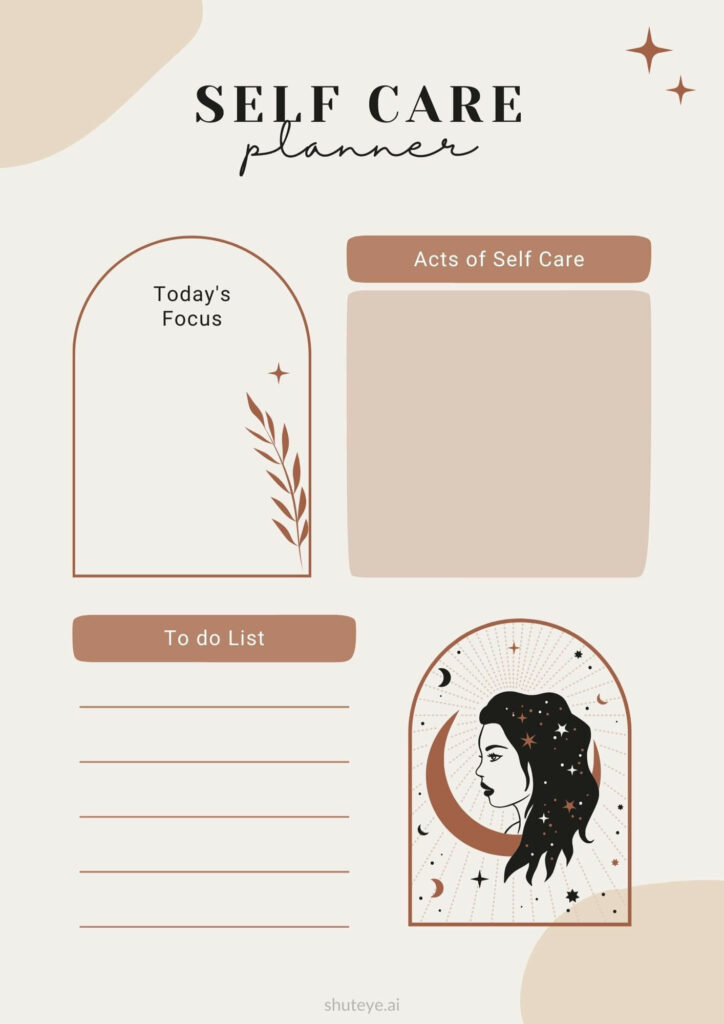


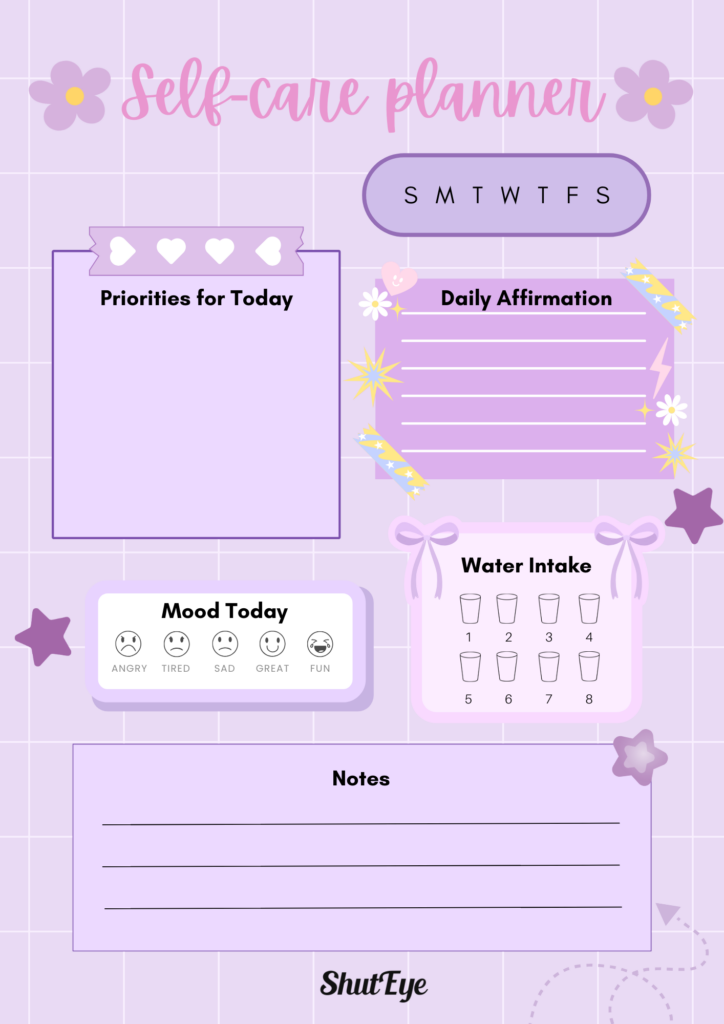
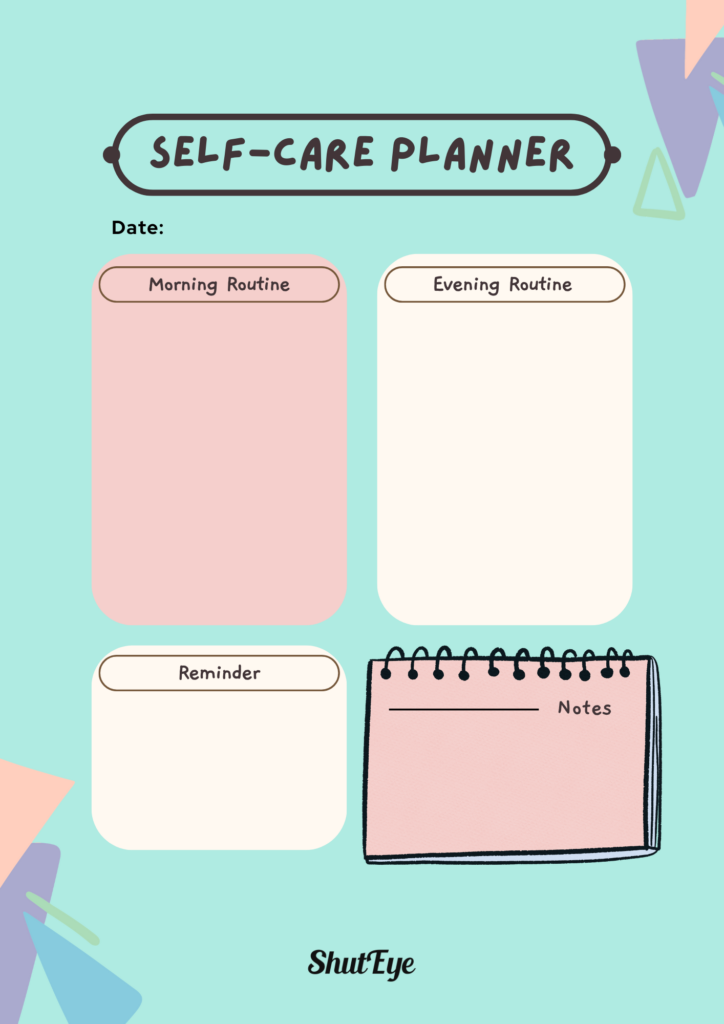
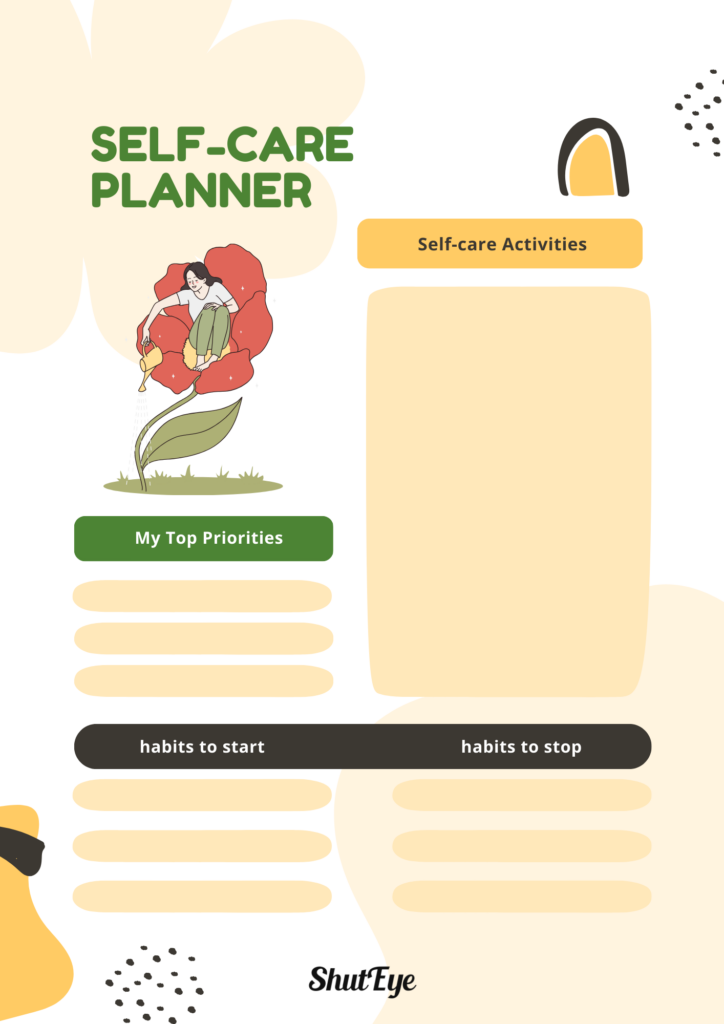

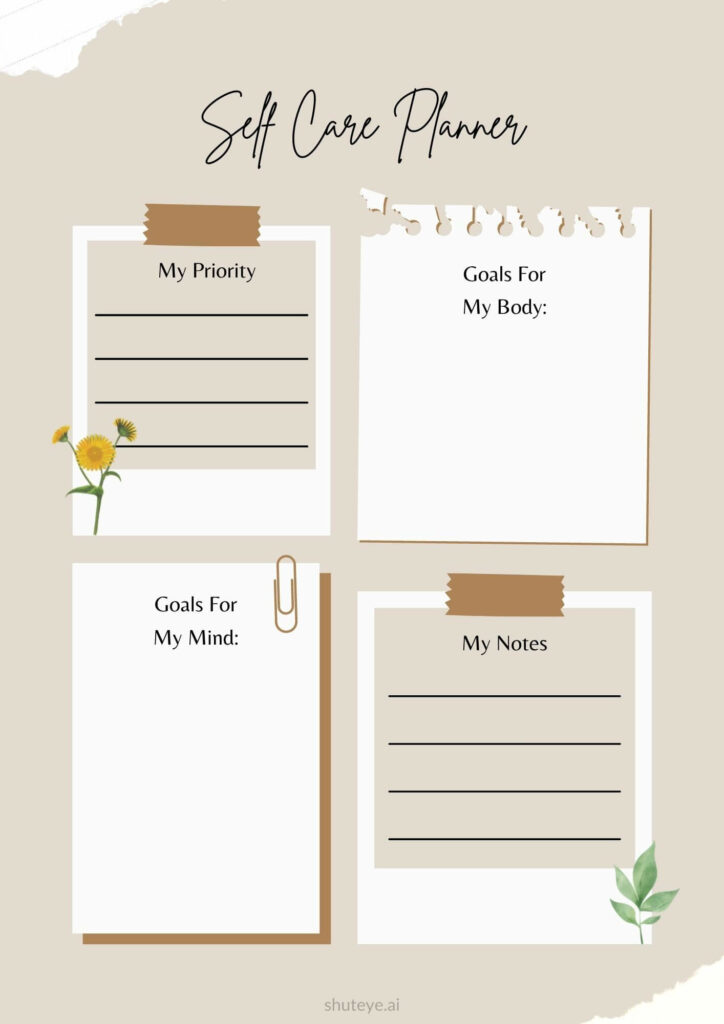
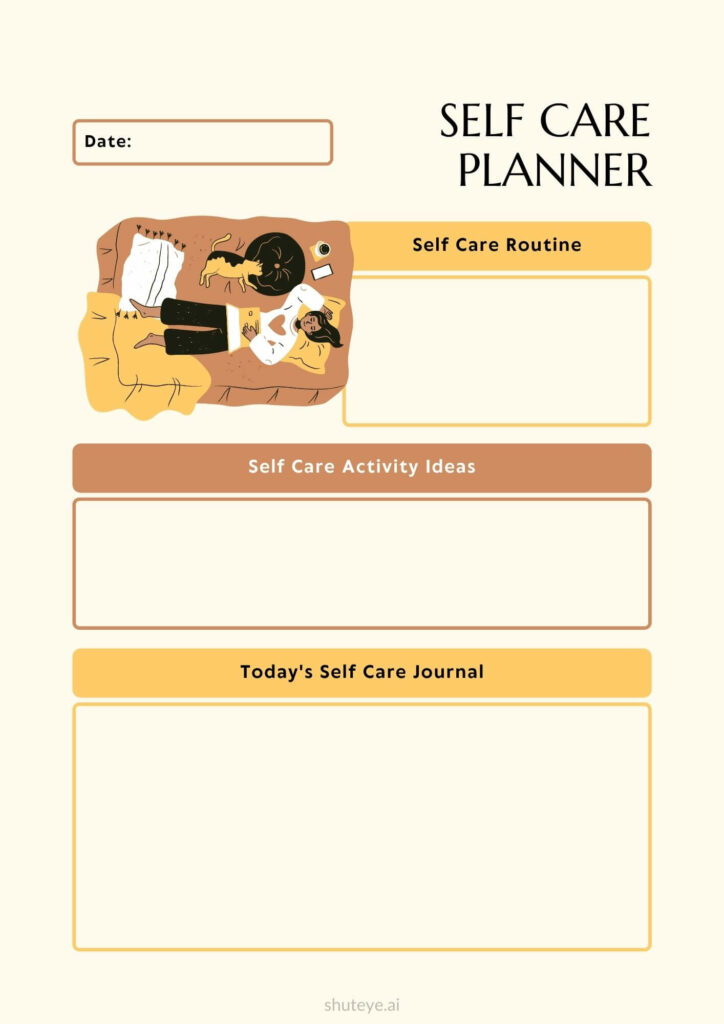
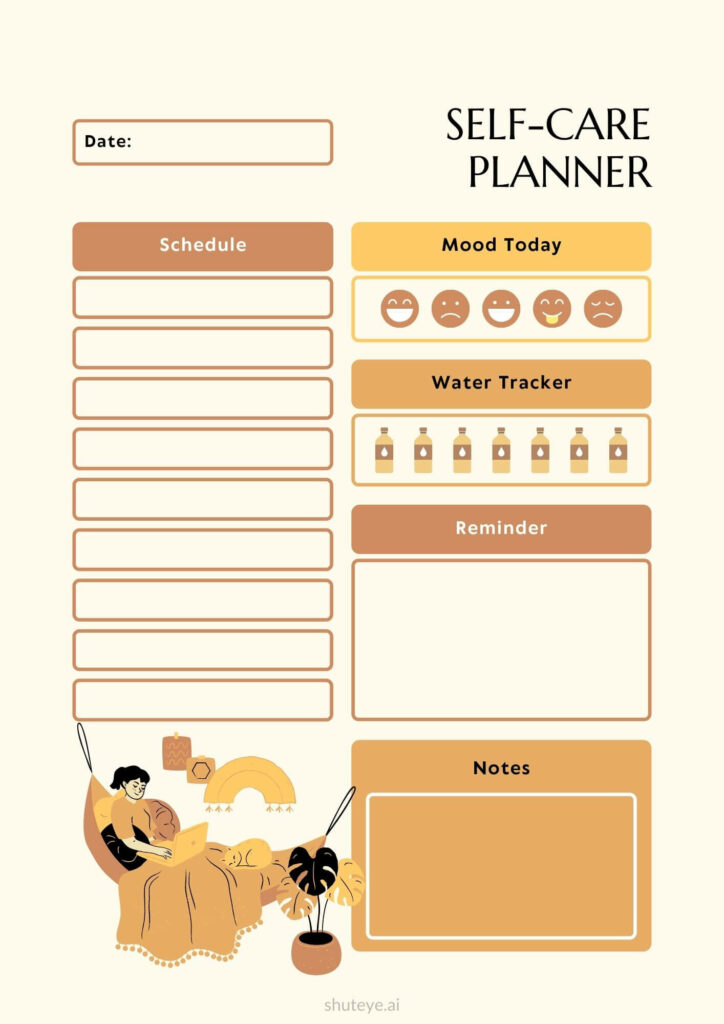
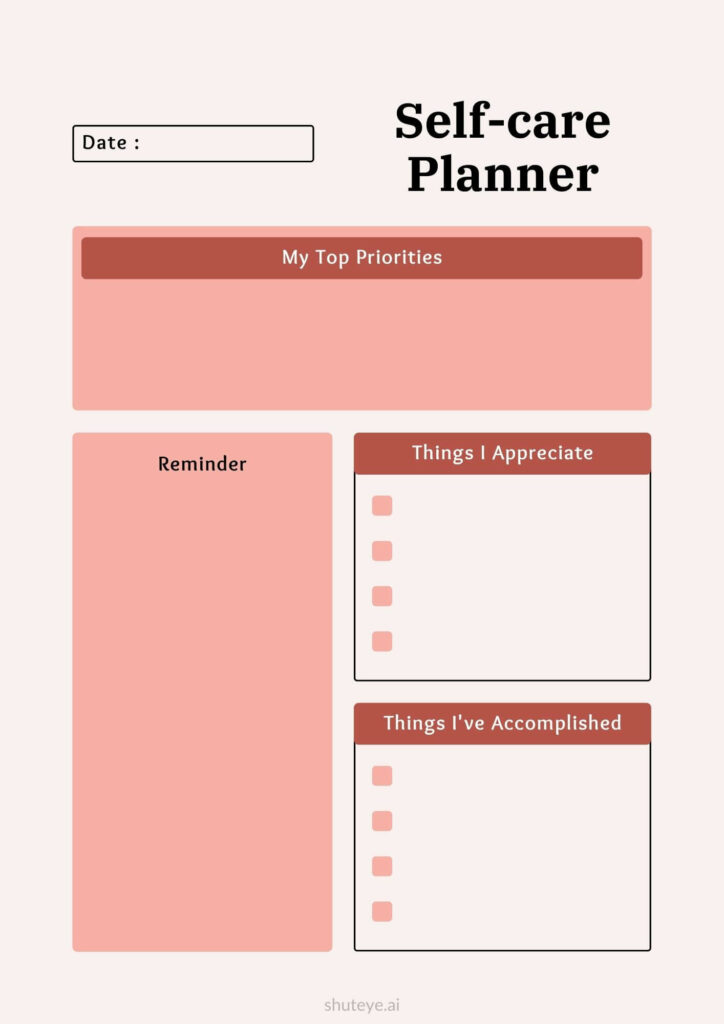
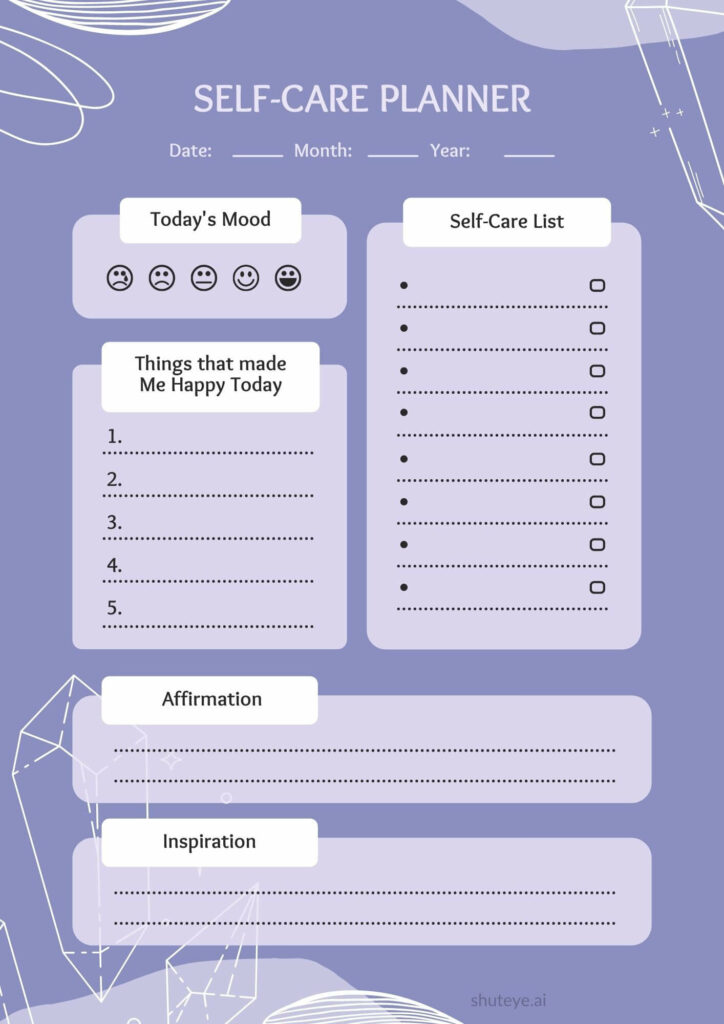
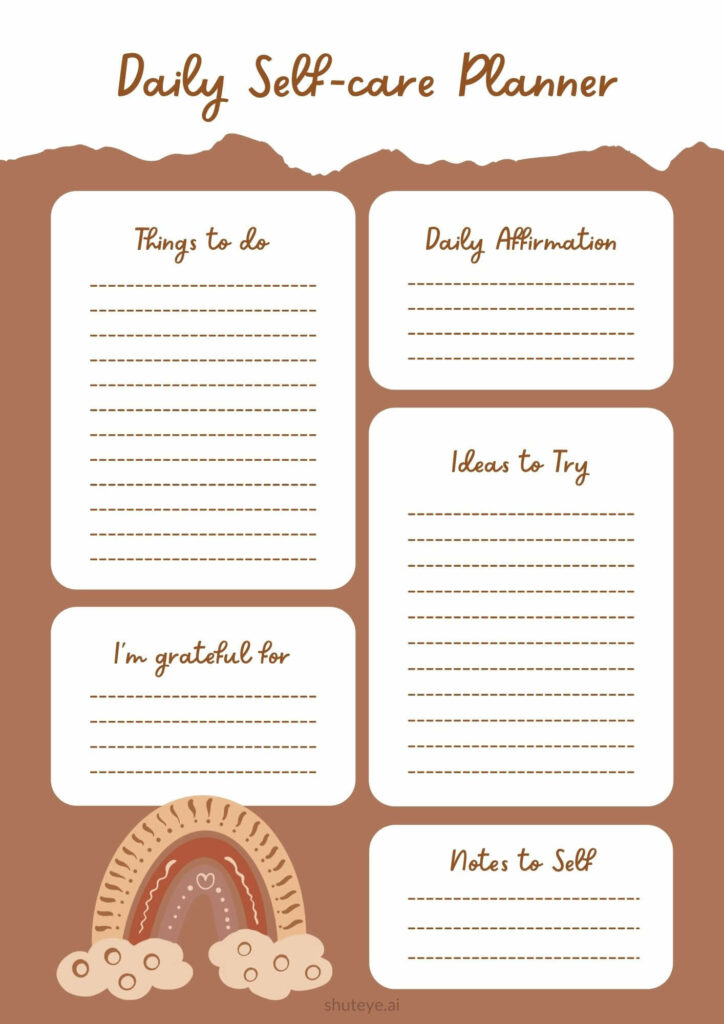

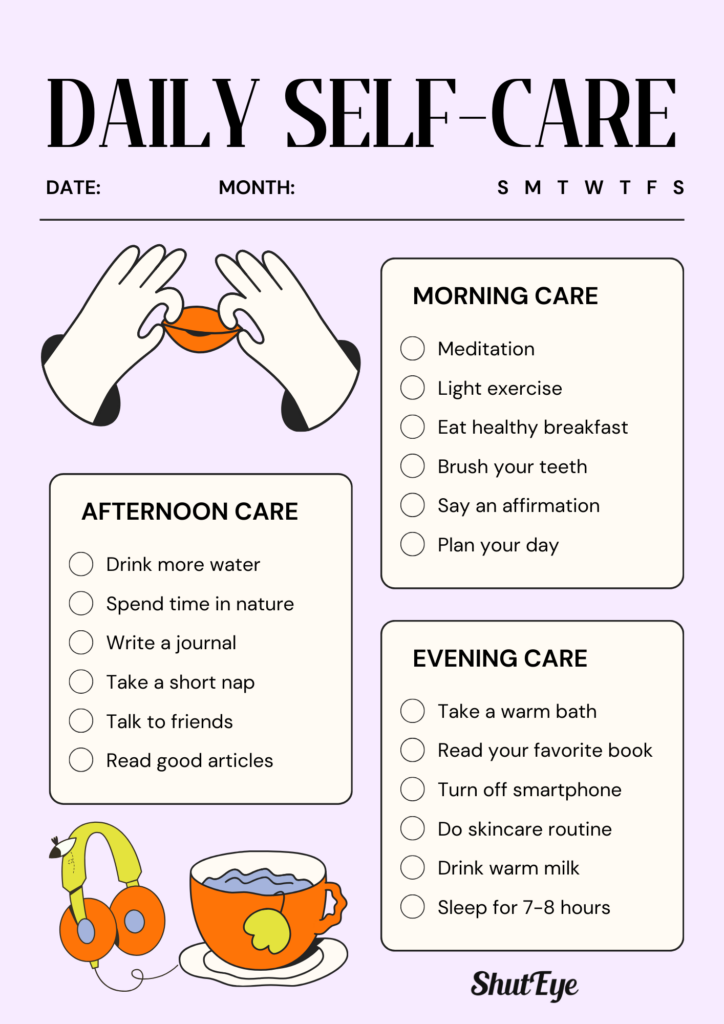
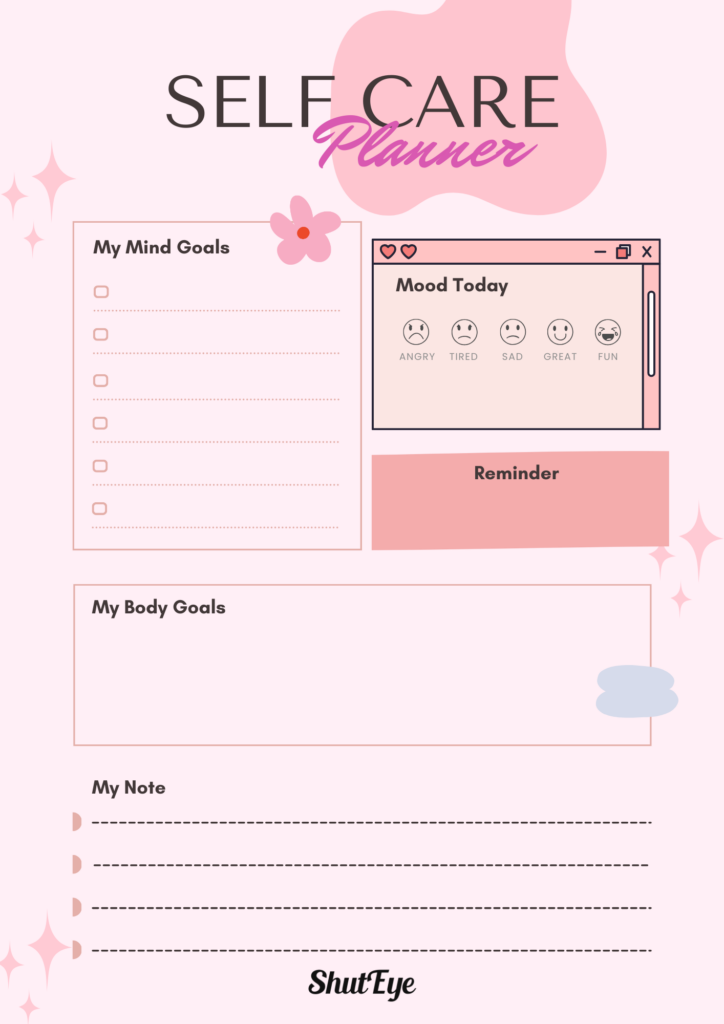
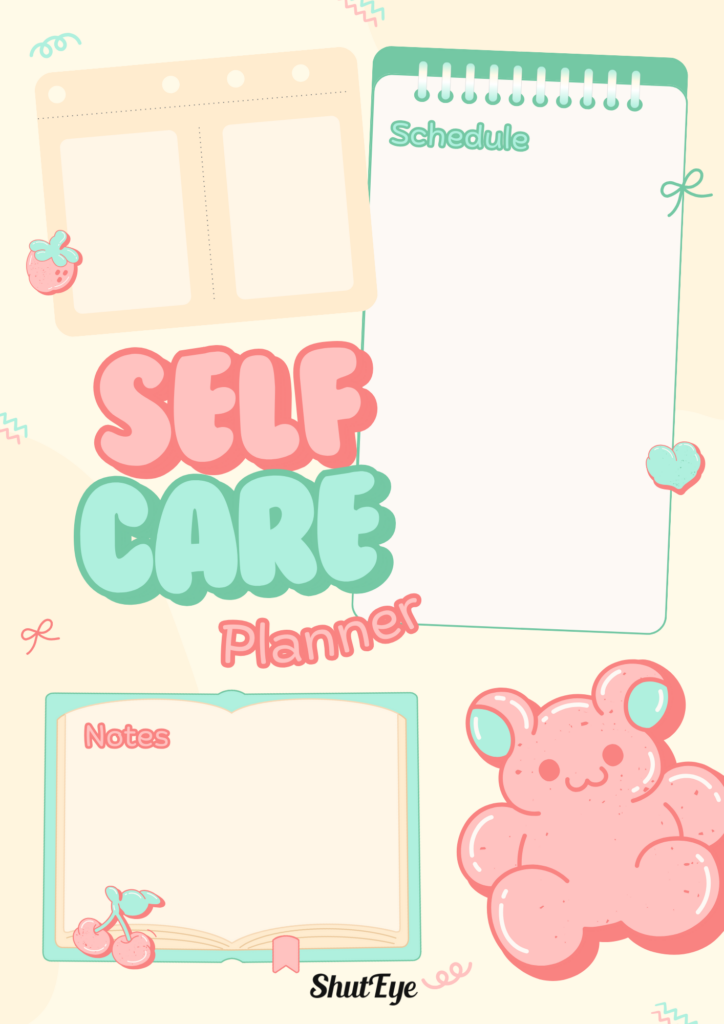
8 Best Tips for Self Care to Take Good Care of Yourself
15+ Self-Care Memes For Well-Being
15 Printable Self-Care Checklist to Take Care of Your Daily Needs
Fishman, S. (2024) Benefits of Using the Sublimation Defense Mechanism [online]. Available at: https://psychcentral.com/health/sublimation-psychology
Glowiak, M. (2024) What is Self-Care and Why is it Important For You? [online]. Available at: https://www.snhu.edu/about-us/newsroom/health/what-is-self-care
Robinson-Kiss, S. (2021) Self-Care Is Not a Mountain You Climb [online]. Available at: https://www.psychologytoday.com/us/blog/they-re-not-coming/202106/self-care-is-not-mountain-you-climb